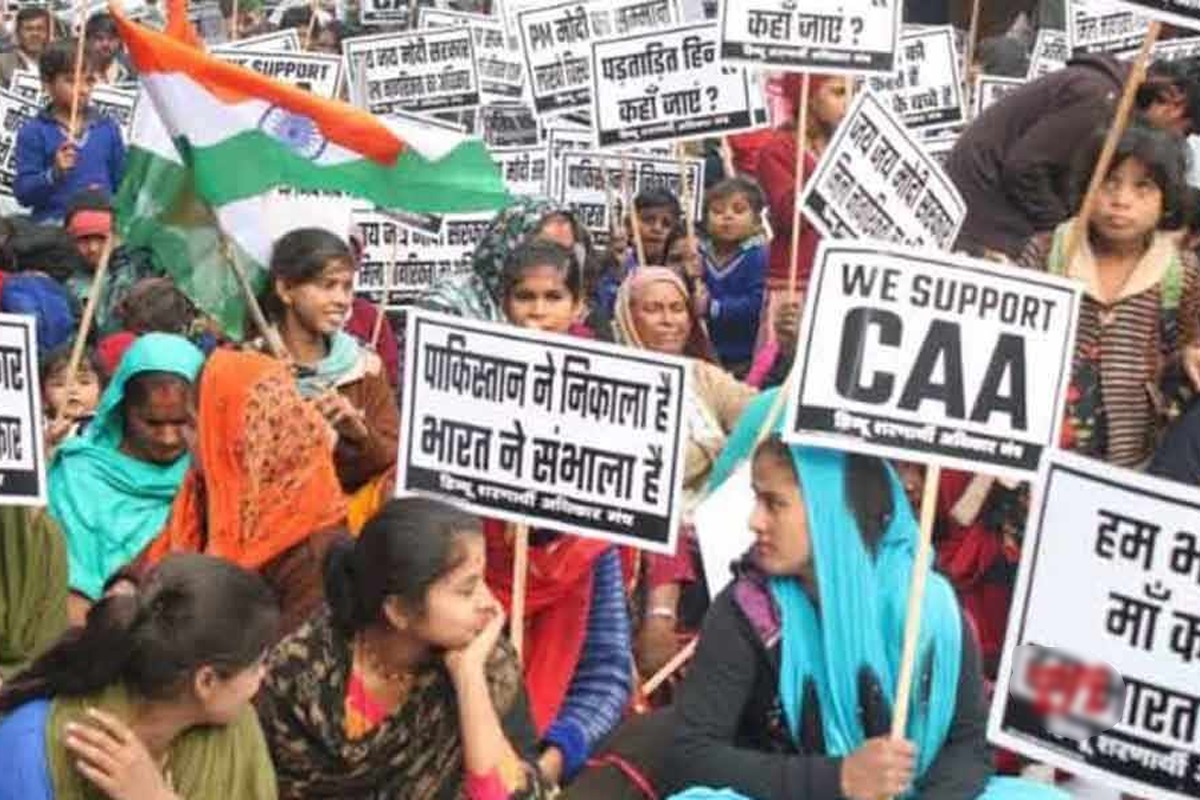The recent announcement by the Modi government regarding the implementation of the Citizenship Amendment Act (CAA) has stirred a mix of anticipation and apprehension among citizens. The Citizenship Amendment Act (CAA) of India, enacted in 2019, aims to provide a path to Indian citizenship for religious minorities fleeing persecution in neighbouring countries such as Pakistan, Bangladesh, and Afghanistan.
We must delve into the intricacies of this legislation and assess its alignment with the fundamental principles of our Constitution. The Government has made it clear that the CAA operates firmly within the bounds of the constitutional framework. Let’s address some prevalent misconceptions. The CAA seeks to grant Indian citizenship to refugees who have endured religious persecution in Afghanistan, Pakistan, and Bangladesh. It extends this provision to six minority communities, including Hindus, Sikhs, Buddhists, Jains, Parsis, and Christians. It’s vital to note that the CAA does not strip any Indian citizen of their citizenship based on religion.
The Constitution of India underscores our obligation to extend fundamental rights and humanitarian assistance to those who have faced persecution. While the implementation of the CAA faced delays due to the COVID-19 pandemic, the government is now committed to executing it diligently. To ensure efficient execution, each state or Union Territory will establish an Empowered Committee. This committee, spearheaded by the Director (Census Operations), will comprise experts from various fields, including intelligence, registration, informatics, and postal services. Their collective expertise will steer the implementation process effectively.
The Citizenship Amendment Act (CAA) will not be enforced in certain parts of Northeastern states where an Inner Line Permit is mandatory for visitors from other regions of India. This exclusion extends to most tribal areas in Northeastern states, including those with special status under the 6th Schedule of the Constitution. Additionally, CAA won’t apply in all Northeastern states where an Inner Line Permit is required for visitors from other parts of the country. Beyond granting citizenship, the CAA safeguards the cultural, linguistic, and social identities of persecuted communities. It guarantees economic opportunities, freedom of movement, property rights, and overall protection for these vulnerable groups, thereby upholding the core tenets of our Constitution.
The implementation of the Citizenship Amendment Act (CAA) underscores India’s commitment to upholding constitutional values while addressing the plight of persecuted minorities. Despite the apprehensions and misconceptions surrounding the act, it stands as a testament to our nation’s humanitarian ethos and commitment to providing refuge to those in need. As the government proceeds with the execution of the CAA, it must ensure transparency, inclusivity, and adherence to the principles of equality and justice enshrined in our Constitution. By navigating these complexities with diligence and sensitivity, India can uphold its democratic ideals and serve as a beacon of hope for those seeking sanctuary from persecution.









